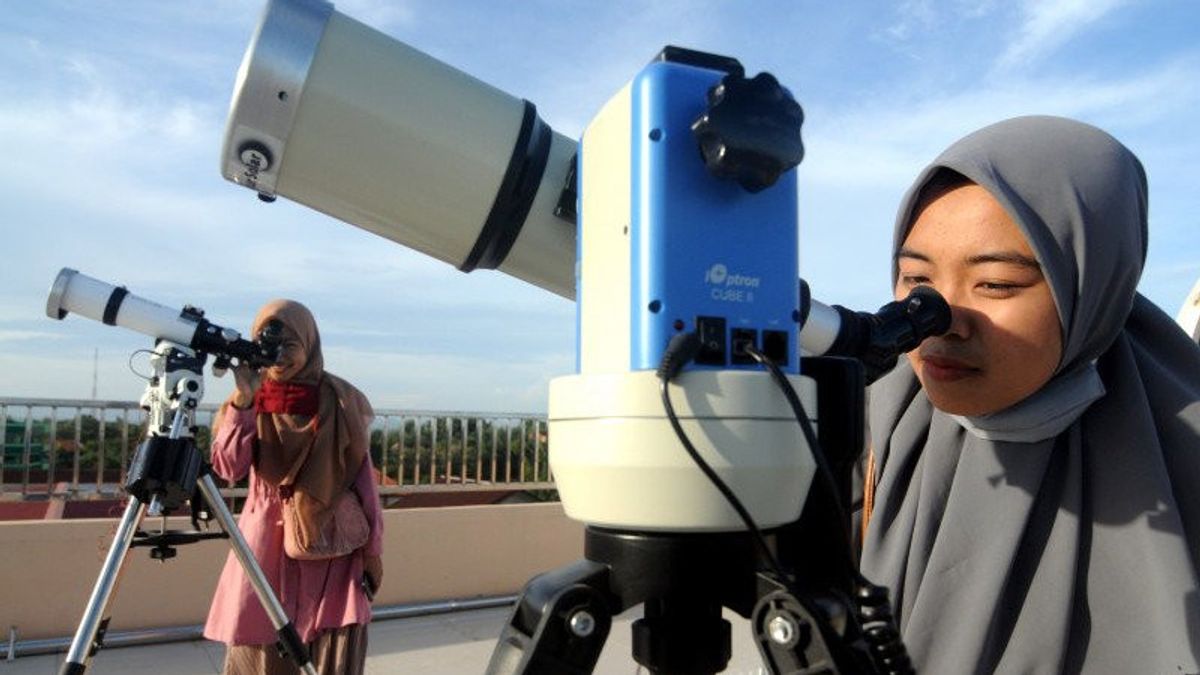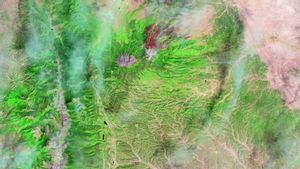JAKARTA - The National Research and Innovation Agency (BRIN) revealed that in the sky, Indonesia will soon experience the phenomenon of a hybrid solar eclipse on April 20, 2023.
A researcher at the BRIN Space Research Center, Johan Muhamad, said a hybrid solar eclipse is a solar eclipse that appears from some parts of the Earth as a total solar eclipse, but in other areas, it appears as an annular solar eclipse.
"The solar eclipse that will occur on April 20 2023 in Indonesian territory is a very special eclipse because it is a hybrid solar eclipse that rarely occurs," he said in a statement quoted by ANTARA, Tuesday, January 31.
He explained that the hybrid solar eclipse will be observed as a total solar eclipse in eastern Indonesia, while in other areas of Indonesia, it will be observed as a partial solar eclipse.
The solar eclipse will also be observed as an annular solar eclipse in the southern Indian Ocean and Pacific Ocean.
In this solar eclipse, the path of the moon's core shadow on the earth's surface will pass through parts of eastern Indonesia.
"The duration of the total solar eclipse at that point lasts 1 minute 16 seconds," he said.
Most of the paths of the solar eclipse pass through areas of the ocean, such as the Timor Sea and the Banda Sea. The land that the path of the total solar eclipse will pass through is part of Timor Leste and several areas in West Papua.
BRIN said that several areas that will be passed through the hybrid solar eclipse are Fakfak Regency, Teluk Bintuni Regency, Teluk Wondama Regency, Yapen Islands Regency, and others.
The forecast for the appearance of the total solar eclipse will be in Biak, Papua Province, which will start at 12.20 WIT. The peak of the eclipse occurred at 13.57 WIT.
Meanwhile in Jakarta, a partial solar eclipse begins at 09.29 WIB and peaks at 10.45 WIB.
"We can observe a solar eclipse safely by using a telescope equipped with a solar filter, special glasses for solar eclipses, a DSLR camera with a telephoto lens equipped with a solar filter, and through a pinhole camera," said Johan.
"Remember, we can't look at the sun directly without using a special sun filter," he said.
Solar eclipses can be an interesting phenomenon for researchers in Indonesia to conduct research related to eclipses, such as observing the sun's corona, measuring the effect of gravitational lensing, the effect of a solar eclipse on ionospheric and atmospheric conditions, and the effect of a solar eclipse on the behavior of living things.
Hybrid solar eclipses can also be an educational tool for Indonesian people, especially children, to learn science.
"In addition, the solar eclipse can attract many domestic and foreign tourists to visit tourist spots that offer the prospect of observing the eclipse," said Johan Muhamad.
The English, Chinese, Japanese, Arabic, and French versions are automatically generated by the AI. So there may still be inaccuracies in translating, please always see Indonesian as our main language. (system supported by DigitalSiber.id)













